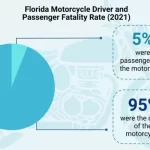If you or a loved one have been seriously injured in a slip and fall accident, it’s understandable if you are concentrating on healing, physically and emotionally. However, even if you haven’t yet given any real thought to filing a lawsuit, it’s important to understand the legal issues of your potential case. Because choices you make during your physical recovery can impact your chances of a financial recovery in court. So let’s look at some concerns you should be considering right now.
What’s the claim?
Most slip and fall cases (including those involving employees) are usually “premises liability” cases, i.e., litigation relating to a location. And these cases revolve around the elements of a negligence cause of action.
To win in court, the plaintiff must prove—by a preponderance of the evidence— that:
- The plaintiff was injured
- The defendant caused that injury because they failed to exercise a reasonable duty of care and
- The plaintiff has sustained damages due to this injury
Also, keep in mind that if employees are injured from a slip and fall while at work, they may have avenues for additional compensation, such as workers’ compensation. But there, too, the requirements are arising out of the same starting point.
Was the plaintiff injured?
While this may seem obvious, the issue can become more complex depending on the type of injury. For example, insurers may be skeptical that a plaintiff really suffered whiplash, while the severity of a leg fracture may be more easily proven than the severity of a concussion.
But what can be the most challenging is when plaintiffs have other existing medical conditions that pre-date their fall-related injury. When that’s the case, a defense attorney may argue that the defendant didn’t cause the plaintiff’s injury; instead, it resulted from their pre-existing condition.
Who is the defendant?
There is often more than one possible defendant in a premises liability case. The property owner may be liable, and property owners can be held liable for the acts of their agents or subordinates (e.g., an employee or contractor). But a tenant may also be responsible, depending on how much control they had over the maintenance of the property. Similarly, if an employee or customer is injured while at work, an employer may be an appropriate defendant.
But we’ve still just scratched the surface. Consider the case where someone slips and falls on a laminate floor covering. It could be that a construction company or employee is responsible for the plaintiff’s injuries if they didn’t properly install the flooring. But what if the problem is because of the manufacturer’s wrongdoing? Then, the plaintiff may want to file a product liability claim against the manufacturer, in addition to the premises liability claims against the other defendants.
Did the defendant breach their duty of care?
The defendant’s role is more complicated than it may seem because the plaintiff must first establish that the defendant owed them that duty of care. When it comes to premises liability litigation, plaintiffs fall into three categories:
- Invitee—someone the defendant invited onto the property (e.g., guests, customers, or employees)
- Licensee—those who have a contractual right to be on the property (e.g., a renter or someone who has an easement)
- Trespasser—someone without authorization to be on the property
State law provides that a defendant owes a duty of care when they bring invitees and licensees onto a property, but they aren’t responsible for trespassers’ safety.
If the defendant did owe a duty of care to the plaintiff, then the next questions will go more to causation. What was it that the defendant did, or failed to do, that caused the harm? For instance, was the defendant aware of the dangerous conditions? How long had it been dangerous? Did they warn you? What steps did they take to prevent the harm? Did they take any affirmative actions that made the situation more dangerous?
Who is liable for the damages?
In a successful premises liability case, plaintiffs receive economic damages (compensation for medical treatment, lost employment, etc.), non-economic damages for pain and suffering, and, in rare cases, punitive damages. To receive damages, plaintiffs prove the severity of their injuries with evidence such as receipts, medical bills, and experts testifying on their medical prognosis.
When it comes to who pays for the damages, plaintiffs don’t need to prove that only one defendant bears responsibility for the accident.
Instead, under Arizona law, defendants can be held responsible under joint, several, or vicarious liability. Therefore, defendants can be liable whether they were completely at fault or if they were only partially to blame. In court, a finder of fact will decide how much each defendant is responsible for the accident (on a percentage basis). Then each defendant pays that percentage of the total damages the plaintiff will receive.
Sometimes, plaintiffs themselves may have done something that contributed to their accident or injuries. Perhaps they were texting on their phone at the time of the accident, or their injuries became worse because they didn’t get prompt medical treatment. Arizona is known as a “comparative fault” state, so mistakes such as those won’t automatically prevent a plaintiff from getting damages. But the damages will be reduced by how much they contributed to their injuries.
There’s surprising complexity for cases that seem as straightforward as a slip and fall. That’s why, if you or a loved one were injured due to a slip and fall, you should contact an attorney. Call our office at 602-548-3400. Our attorneys are happy to discuss your case and what options may be best for you. For a confidential consultation with one of our attorneys, call today.
Scott David Stewart is an attorney in Phoenix, Arizona. Mr. Stewart’s personal injury practice division focuses on dog bite, motorcycle accidents, truck accidents, auto accidents and general injury claims.




